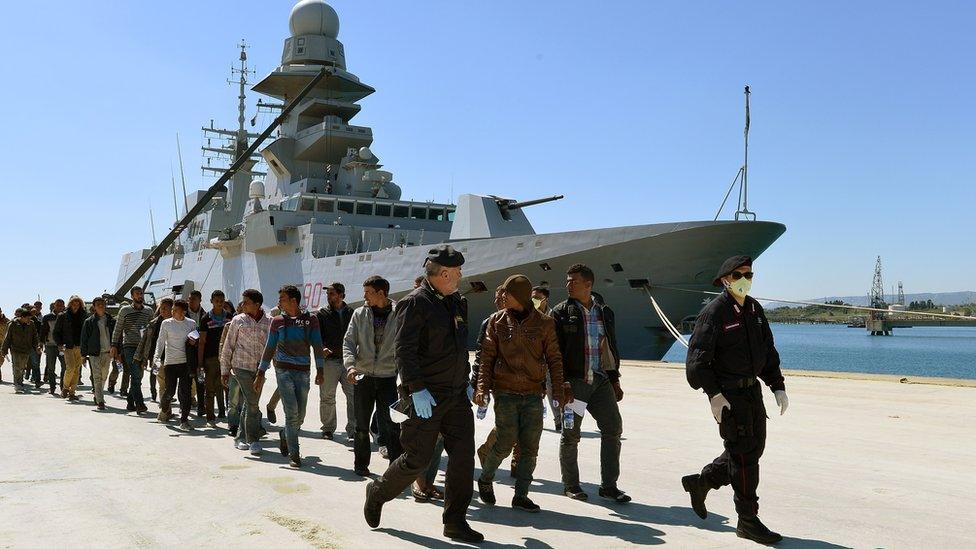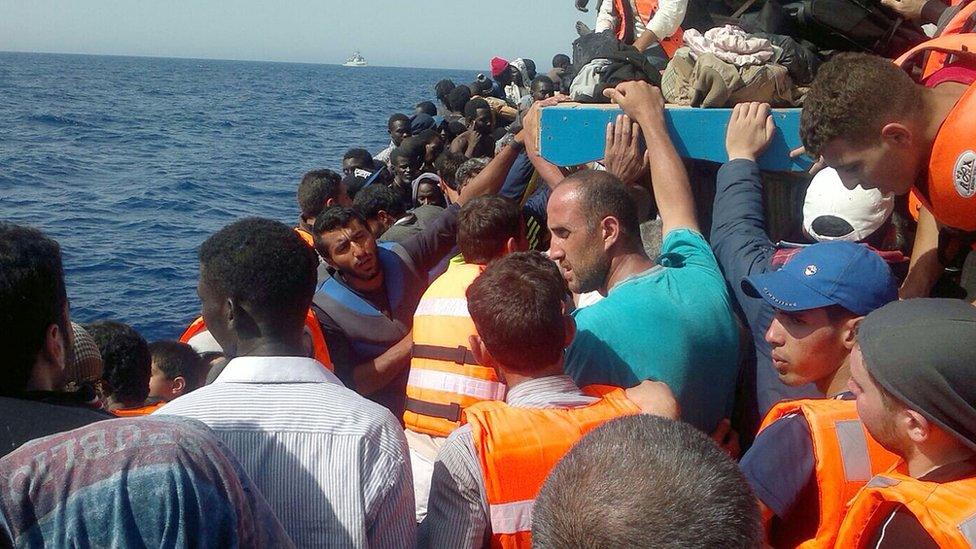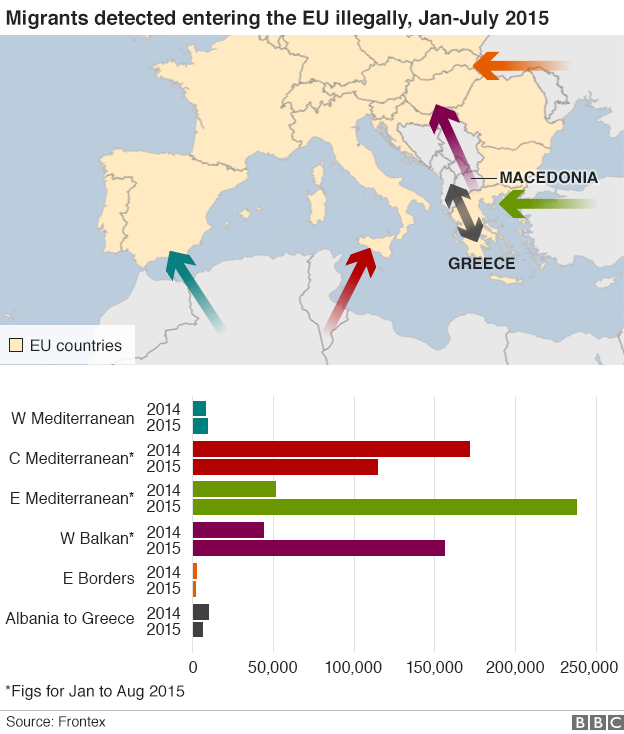EU seizures of migrant boats won't stop crime gangs - IOM
- Published

Warships like this Italian vessel in Sicily have helped rescue migrants off Libya
Efforts to seize people traffickers' boats in the Mediterranean will fail unless the EU also fights the criminal gangs in Europe, a top migration expert has warned.
People trafficking is now the second most lucrative criminal trade after arms smuggling, Eugenio Ambrosi of the International Organization for Migration (IOM) said in London.
Traffickers must be tackled north and south of the Mediterranean, he said.
Migrants pay huge sums to reach the EU.
Naval interceptions of traffickers' boats are set to start on Wednesday. Up until now the EU has focused on rescue operations.
Many migrants pay traffickers more than $1,000 (£657) per head in order to reach a Greek island from Turkey - a relatively short, but high-risk voyage. Often the migrants are packed onto rubber dinghies, which tend to be unstable and prone to sinking.
Nearly 3,000 migrants have drowned trying to cross the Mediterranean so far this year. The deadliest voyages are from Libya to Italy, but more migrants now take the Turkey-Greece route.

Migrants aboard a boat from Libya, where conflict and brutality have forced many to flee
The civil war in Syria has fuelled this year's unprecedented influx of migrants reaching central Europe via the Balkans. And Turkey has warned that millions more could flee the war.
Syrians, Iraqis and Eritreans generally get refugee status, but most economic migrants from Asia and Africa fail to get asylum.
EU naval operation
Mr Ambrosi, the IOM's European regional head, said "the transnational criminal rings of traffickers are the same as those involved in weapons and drugs".
The EU is planning a naval operation to board, search and seize traffickers' boats on the high seas off Libya. The UK is contributing the frigate HMS Richmond to that effort.
In June the EU launched the first phase of the operation, called EUNavfor Med, external, involving naval surveillance to detect the smugglers' boats and monitor trafficking patterns.
The second phase - boarding and seizing smugglers' boats - is set to begin on Wednesday, external. It is called "Operation Sophia".
"The boats are not the reason for the smuggling," Mr Ambrosi said, warning that "the nucleus of the criminals remains untouched" if efforts are just focused on the boats.
Black market jobs
A major "pull" factor for migrants entering the EU illegally was "the large black market labour force", he said.
In the south of Italy hundreds of fruit and vegetable pickers are employed seasonally on very low wages, often in wretched conditions, he said. He was speaking at a briefing organised by the Association of European Journalists, external.

The eastern Mediterranean route has overtaken the central route as the most commonly used this year - with Syrians forming by far the largest migrant group
Europe faces a "complex, mixed flow" of asylum seekers, he said, so "it is not justified to claim it is a refugee crisis". The current numbers are "absolutely manageable for Europe", Mr Ambrosi argued.
The word "crisis" does however apply to Turkey's two million Syrian refugees and the huge displacements of people in northern Nigeria, the Central African Republic and other African conflict zones, he added.
According to Mr Ambrosi, winter is unlikely to reduce the flow to Europe by much, especially as the Turkey-Greece route is a relatively short distance.